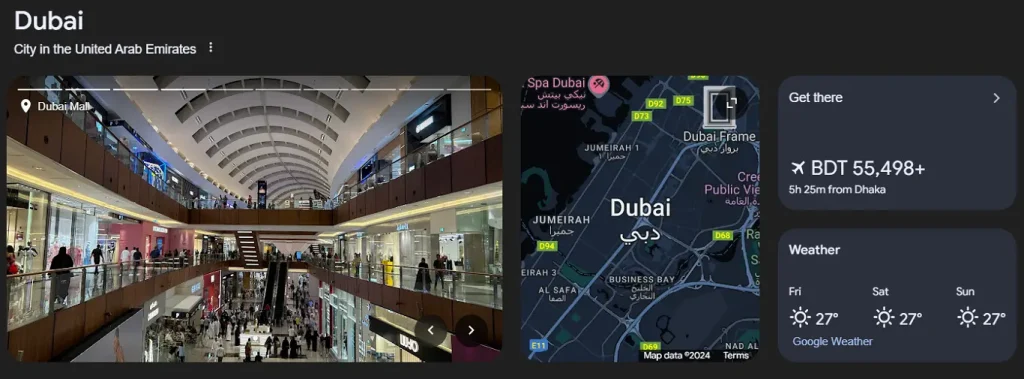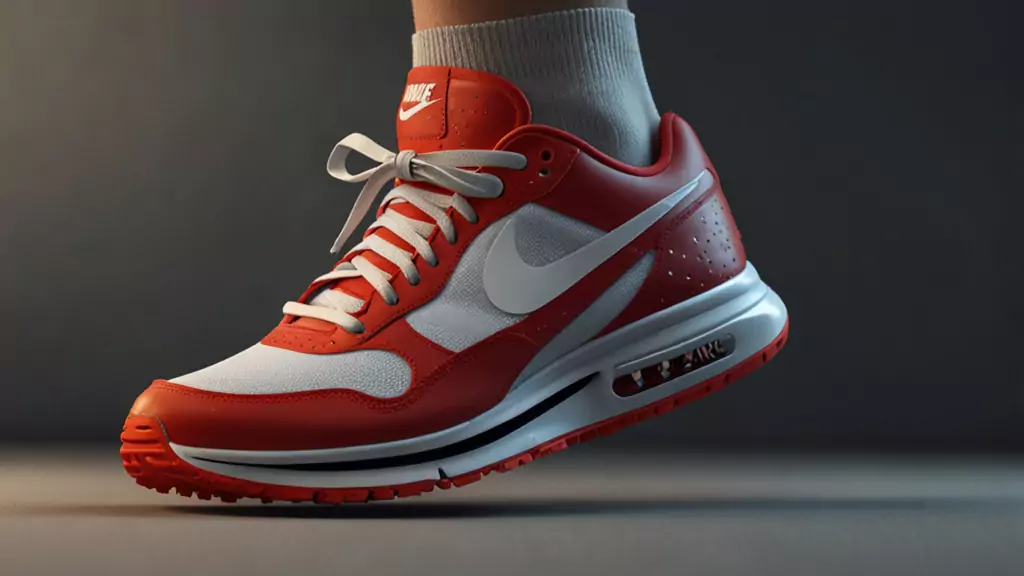Avoid hiring Brand Ambassador without these data
Define Brand Ambassador! A question I Googled when I first started looking at this profession. It should also be your initial phrase if you are planning to conduct research on it.
Over the years, as I have researched and observed the dynamics between companies and their chosen representatives, one thing has become clear: a brand ambassador holds immense value in today’s marketing landscape. It does not matter if you are new to the field or have an well popular brand, hiring a brand ambassador is quite a wright track to connect your brand with customers.
In this blog, I aim to share insights from my years of experience, explain what a brand ambassador is, and detail how they influence modern marketing strategies.
What Is a Brand Ambassador?
If we say simply, a brand ambassador is someone who represent the company and its services to a mass amount of customers. These individuals are frequently celebrities or influential people. Their job is to positively portray the brand in order to increase sales and exposure. They take on the role of the company’s public face, representing its ethics, beliefs, and character. They serve as the human extension of the brand, in essence.
When you define a brand ambassador, think of someone who brings your brand’s identity to life in the real world. Whether they are appearing in a TV commercial, posting on social media, or speaking at a public event, their words, behavior, and overall persona should align with the brand they represent.
The Role of a Brand Ambassador
A brand ambassador isn’t just someone who shows up for photo shoots or commercial ads. Their role is multi-faceted, involving active engagement with the target audience and promoting the brand across various channels. Based on my experience, here are some critical elements of their role:
Embody the Brand’s Identity
A successful brand ambassador mirrors the values and ethos of the company they represent. From their appearance and behavior to how they interact with others, the ambassador must resonate with the brand’s core message. For example, a fitness brand would seek an ambassador who leads a healthy and active lifestyle.
Engage the Audience
With the rise of digital marketing, engagement has become a key factor in brand promotion. The role of a brand ambassador now extends to actively participating in conversations with their followers. Whether through social media comments or live sessions, they build a connection that enhances the brand’s credibility.
As I’ve observed, genuine interaction always trumps staged content. Audiences today appreciate authenticity, and a brand ambassador who fosters this connection will make a significant impact on customer loyalty.
Leverage Social Media
Gone are the days when brand ambassadors were limited to TV and print ads. Today, social media platforms such as Instagram, TikTok, and YouTube have become major channels for brand promotion. Popular personalities like influencers, have brought product promotion to another level.
From my perspective, ambassadors who can creatively integrate products into their everyday content perform better. Their followers don’t want to see repetitive advertisements; they want authentic recommendations from someone they trust.
Public Appearances and Endorsements
Brand ambassadors are often called upon to make appearances at events, launch parties, or even participate in media interviews. These events are essential as they not only increase the brand’s visibility but also allow customers to experience the product or service firsthand.
As I’ve witnessed over the years, a single powerful public appearance can go a long way in creating buzz around a brand. Ambassadors who carry themselves well in such settings tend to leave a lasting impression, strengthening the brand’s reputation.
Content Creation
A modern-day brand ambassador doesn’t just promote the product; they also contribute to the creative storytelling behind it. Many companies encourage their ambassadors to generate content that showcases their personal experience with the product. Whether it’s a simple unboxing video or a detailed blog post, the content they create helps the audience feel a personal connection to the brand.
In my experience, this form of user-generated content can have a much greater influence on purchase decisions than traditional advertisements.
Define Brand Ambassador
After spending several years studying brands and their marketing strategies, one key element continues to stand out: the power of a brand ambassador. In today’s highly competitive marketplace, brands are constantly looking for ways to distinguish themselves and reach wider audiences. One of the most popular way is getting a brand ambassador with strategic approach.
A brand ambassador is someone who represents a company’s goods more than just its name or face. They are individuals who promote and represent a brand, helping to shape a positive image and increase brand awareness.
Industries That Rely on Brand Ambassadors
Over the years, I’ve seen that almost every industry can benefit from having a brand ambassador, but some sectors stand out due to their heavy reliance on visual appeal, lifestyle association, and the ability to influence purchasing decisions. Here are some key industries that heavily rely on ambassadors:
1. Fashion and Beauty
For decades, fashion and beauty industries using them getting outstanding results all over the world. These industries depend on showcasing trends and new products, and who better to do that than individuals who embody style, elegance, and influence? Whether it’s actors, models, or beauty influencers, these ambassadors are vital in showcasing new products and trends.
Brands like L’Oréal, Dior, and Chanel use ambassadors to reflect their brand values while reaching fashion-conscious consumers. Over the years, the importance of finding the right ambassadors for these industries has only grown. Beauty influencers on platforms like Instagram and YouTube have become particularly valuable due to their direct connection with consumers.
2. Technology
Technology is another industry where brand ambassadors play a significant role. The ability to demonstrate new gadgets, apps, and software in a relatable way has become crucial for tech companies. From smartphone brands like Apple and Samsung to companies launching new apps, tech ambassadors help simplify complex technology for everyday consumers.
In this industry, tech influencers and experts often carry more weight than traditional celebrities. Their detailed reviews and demonstrations help build trust, as people rely on their technical knowledge and recommendations to make purchasing decisions.
3. Food and Beverage
The food and beverage industry has increasingly turned to ambassadors to promote new flavors, healthy options, and lifestyle-oriented products. Whether it’s celebrity chefs endorsing new recipes or influencers promoting healthy lifestyle choices, ambassadors can make or break a product’s success.
I’ve found that consumers trust recommendations for products they consume daily. Brands like Coca-Cola, Pepsi, and Starbucks use brand ambassadors to create campaigns that highlight their beverages as part of a broader lifestyle, while newer, health-oriented brands seek ambassadors who promote fitness and wellness.
4. Automotive
In the automotive industry, brand ambassadors are often used to showcase the latest car models, innovations, and features. Ambassadors in this industry must embody the luxury, speed, or reliability that the car brand wants to convey.
For instance, companies like Mercedes-Benz and BMW often collaborate with athletes, actors, or car enthusiasts who align with their premium image. Over the years, I’ve noticed that automotive ambassadors not only promote the vehicles but also help shape perceptions of the brand’s future direction—whether it’s toward sustainability, innovation, or luxury.
5. Travel and Hospitality
Ambassadors are critical for brands in the travel and hospitality industries, especially when it comes to attracting tourists, promoting destinations, and endorsing travel experiences. Social media influencers who travel extensively have become popular ambassadors for this sector, offering authentic recommendations and reviews of hotels, airlines, and travel destinations.
Brands like Marriott, Hilton, and Emirates often rely on these individuals to reach a global audience by showcasing their experiences in exotic locations, highlighting luxury accommodations, and providing an insider’s perspective that entices potential travelers.
6. Sports
Sports brands are among the most well-known users of brand ambassadors, typically relying on athletes to endorse sportswear, equipment, and lifestyle products. Athletes such as Cristiano Ronaldo for Nike or Serena Williams for Gatorade bring not only a huge following but also a level of authenticity that speaks to the target audience.
In my years of observing sports endorsements, I’ve seen how these partnerships go beyond just selling products. People always follow popular athletes to get confidence, good routine, and healthy life. So having one of them is a awesome approach to get more customers.
How Are Brand Ambassadors Hired?
The process of hiring a brand ambassador is not as simple as finding someone famous to attach to your product. Brands must carefully select individuals who align with their values and who can effectively communicate their message. Here’s a breakdown of how the hiring process works:
1. Selection Process
Brands usually look for individuals who align with their core values, reflect their target audience, and have a strong following in the relevant niche. From my experience, this step is crucial because a mismatch between the ambassador and the brand can lead to inauthentic partnerships, which savvy consumers will quickly pick up on.
For instance, a fitness company might select an athlete who promotes a healthy lifestyle, whereas a luxury watch brand might look for someone who embodies sophistication and success.
2. Agreements
Once a potential brand ambassador has been identified, the next step is to formalize the partnership through contracts. These agreements usually outline the ambassador’s responsibilities, the scope of work (such as social media posts, public appearances, or commercials), the duration of the partnership, and the compensation.
The contracts can vary widely based on the ambassador’s reach and the campaign’s size. For example, I’ve seen multi-million-dollar deals for celebrities in long-term endorsements, while micro-influencers may work with smaller brands for more modest fees.
Types of People Selected as Brand Ambassadors
When you define a brand ambassador, you must consider the wide variety of individuals who can fill this role. Over the years, I’ve seen brands experiment with different types of ambassadors, each offering unique benefits based on their audience reach, expertise, and authenticity.
1. Celebrities
Celebrities such as actors, musicians, and athletes are often the go-to choice for many brands because of their large fan base and media visibility. Their popularity is worldwide, and their attachment can enhance brand’s range.
One classic example is Nike, which has long associated itself with top-tier athletes. These collaborations not only increase the brand’s visibility but also align it with concepts like success, determination, and perseverance.
2. Influencers
In today’s digital age, influencers—particularly social media personalities—have become some of the most effective brand ambassadors. These individuals may not have the same widespread fame as celebrities, but their dedicated following trusts their opinions.
In my research, I’ve seen that influencers often outperform traditional celebrities in terms of engagement. Brands such as Fashion Nova have built their entire marketing strategy around influencer partnerships, leveraging their social media reach to engage directly with consumers.
3. Experts
Industry professionals and experts who are respected in their field also make excellent ambassadors. This is particularly true in highly technical industries, where the credibility of an expert is essential for building trust.
For instance, tech companies like Microsoft often rely on software developers or engineers to promote their products because they offer valuable insights that resonate with tech-savvy customers.
4. Everyday Consumers
Another growing trend I’ve noticed is the use of everyday consumers as brand ambassadors. These are loyal customers who genuinely love the brand and are willing to share their experiences. This type of ambassador is particularly valuable for smaller, niche brands that want to build an authentic community.
For example, brands like Starbucks often feature everyday consumers in their marketing campaigns, encouraging them to share their experiences with the brand on social media.
Eight Popular Brands and Their Notable Brand Ambassadors: A Closer Look Based on My Years of Research
Having spent years researching some of the most recognized brands around the world and their marketing strategies, one concept that consistently stands out is the role of a brand ambassador. Whether it’s a celebrity, athlete, influencer, or even a brand’s own leadership team, brand ambassadors are crucial in shaping public perception and promoting products to a wider audience. The way a brand chooses its ambassador often reflects its values and marketing approach.
Today, I’ll share insights on eight popular global brands and how they use brand ambassadors to promote themselves, based on my observations and research. We’ll also discuss the keyword “define brand ambassador,” which helps highlight the role these figures play in shaping brand image.
1. Apple
Brand Ambassador: Tim Cook and Apple’s Innovation
Apple is one of the most iconic brands in the world, known for its sleek designs and cutting-edge technology. Interestingly, Apple doesn’t follow the typical route of using high-profile celebrities as their brand ambassadors. Instead, they leverage the influence of their CEO, Tim Cook, and the reputation of their innovative products.
Apple’s approach is centered on the technology itself being the ambassador, representing quality, simplicity, and innovation. While many brands rely heavily on external figures to promote their products, Apple believes in the strength of its own narrative, driven by its leadership and product excellence.
Having researched the tech industry for years, I’ve seen how this strategy creates a strong, almost cult-like following for Apple. Tim Cook, as the face of Apple, exemplifies trust and innovation, reinforcing the idea that the brand itself is the star.
2. Nike
Brand Ambassador: Michael Jordan, Serena Williams, Cristiano Ronaldo
When you think of Nike, it’s hard not to think of Michael Jordan. One of the earliest and most successful brand ambassador partnerships, Jordan’s connection with Nike has become legendary. His line of Air Jordan shoes continues to be a bestseller decades after its launch.
But Nike didn’t stop with Jordan. The brand also boasts collaborations with Serena Williams and Cristiano Ronaldo, both of whom have their own strong personal brands that align with Nike’s core values of excellence, determination, and perseverance.
Nike’s consistent use of athletes as brand ambassadors underscores the company’s focus on performance and aspiration. Over the years, I’ve observed how these partnerships bring authenticity to the brand’s messaging, inspiring customers who look up to these figures in their respective sports.
3. Coca-Cola
Brand Ambassador: Selena Gomez, Taylor Swift
Coca-Cola is a master at leveraging pop culture and trends to stay relevant across generations. In recent years, they’ve worked with celebrities like Selena Gomez and Taylor Swift, both of whom have massive global followings. These artists represent the brand’s youthful, refreshing, and energetic image.
Coca-Cola has always been smart about choosing ambassadors who reflect the brand’s values and appeal to different demographics. For example, Taylor Swift connects the brand with younger audiences, especially those influenced by music and pop culture. This approach creates a broad-reaching appeal, ensuring that the brand remains timeless, regardless of shifting trends.
From my research, I’ve noticed that Coca-Cola is particularly skilled at crafting emotionally resonant campaigns using these ambassadors, which helps in establishing a deeper connection with consumers.
4. Samsung
Brand Ambassador: BTS
One of the biggest tech companies in the world, Samsung, has capitalized on the global fame of the K-pop group BTS. BTS, with their massive fanbase, known as the ARMY, has elevated Samsung’s visibility, particularly among younger, tech-savvy audiences.
Samsung’s decision to use BTS as brand ambassadors goes beyond their music; it taps into the group’s influence in fashion, technology, and lifestyle. This partnership has helped Samsung position its smartphones and gadgets as trendy, innovative, and highly desirable.
Over the years, I’ve seen how brands like Samsung carefully select ambassadors who can engage with a younger audience in an authentic way. BTS embodies a blend of creativity, style, and global appeal—attributes Samsung wants associated with its products.
5. Louis Vuitton
Brand Ambassador: Emma Stone, J-Hope (BTS)
Louis Vuitton is known for its luxurious image and has carefully curated its brand ambassadors to reflect this reputation. Emma Stone, an Oscar-winning actress, and J-Hope, a member of BTS, represent Louis Vuitton’s focus on elegance, global appeal, and style.
From Hollywood red carpets to global fashion events, Louis Vuitton’s ambassadors consistently showcase the brand as one that represents timeless luxury. The collaboration with J-Hope demonstrates the brand’s recognition of K-pop’s rising influence in the fashion world.
In my years of researching luxury brands, I’ve observed how Louis Vuitton balances heritage with contemporary influences, ensuring it remains both classic and relevant to new generations.
6. Adidas
Brand Ambassador: Lionel Messi, Beyoncé
Adidas has embraced a wide range of ambassadors, from global athletes to musicians. Two of the most notable names associated with Adidas are Lionel Messi, one of the greatest football players of all time, and Beyoncé, an international music icon.
Adidas, much like Nike, sees the value in partnering with high-performance athletes like Messi to promote its sportswear and shoes. On the other hand, Beyoncé brings a different level of engagement, appealing to fans through music, fashion, and lifestyle.
From my observations, Adidas’s diverse choice of brand ambassadors helps it reach a broad audience—from sports enthusiasts to those influenced by pop culture and fashion.
7. Google
Brand Ambassador: Tech Influencers and Industry Experts
Unlike many consumer-facing brands, Google takes a different approach to brand ambassadors. They collaborate with tech influencers and industry experts to promote their products, whether it’s a new software update, device, or AI-powered tool.
Google understands that its products are often complex, requiring a deeper level of trust from customers. By working with experts, Google ensures that its technology is explained and endorsed by people with credibility in the field. This builds trust among users, who might otherwise be overwhelmed by Google’s technical prowess.
In my research, I’ve found that Google’s focus on tech influencers rather than traditional celebrities is a strategic move that aligns with its brand values of innovation and reliability.
8. Toyota
Brand Ambassador: Tiger Woods, Millie Bobby Brown
As one of the largest automotive brands in the world, Toyota has a long history of using brand ambassadors to promote its vehicles. Tiger Woods, one of the most famous athletes globally, and Millie Bobby Brown, the young actress known for her role in Stranger Things, have recently represented Toyota.
These two can gather very different people to company/brand. Woods is synonymous with endurance and success, fitting for Toyota’s more performance-oriented models. Brown, on the other hand, connects with younger audiences, positioning Toyota as a brand that’s both innovative and accessible.
Toyota’s ability to bridge multiple generations and demographics through its ambassador choices shows how the brand stays relevant in a fast-evolving industry.
How Brand Ambassadors Are Compensated
The question “How much do brand ambassadors earn?” It truly depends:
1. Fame and Reach
If the ambassador is very famous, he/she can gather more customers. Celebrities with a global fan base can command millions for a single campaign, while micro-influencers or experts may receive more modest payments.
2. Size of the Brand
Large brands with significant marketing budgets, like Nike or Pepsi, are willing to pay top dollar for top-tier talent. However, smaller brands or startups might focus on local or niche influencers who align with their values but are more cost-effective.
3. Duration and Scope of Partnership
A company contracts with brand ambassador depends on duration. Brands might pay more for ambassadors who commit to exclusive deals over
several years, while short-term partnerships or one-off collaborations tend to be more affordable.
The Role of Brand Ambassadors for Small Brands
While big brands have the budget to hire celebrities and influencers with millions of followers, small businesses can also benefit from ambassador programs by focusing on local influencers or micro-influencers. In my experience, these smaller-scale ambassadors often have highly engaged followers who are more likely to convert into paying customers.
Benefits for Small Brands:
- Cost-Effective – Micro-influencers generally charge less but can offer significant value in terms of engagement and authenticity.
- Authentic Connections – These ambassadors tend to have more personal relationships with their audience, which can result in more trust and genuine enthusiasm for the brand.
Brands That May Not Need Ambassadors
Not every brand requires an ambassador, and in some cases, it may not be the right fit. Based on my observations, here are some scenarios where brands might choose to forego ambassadors:
1. Niche Markets
If a brand targets a very specific, niche market, it may be more effective to focus on targeted marketing or partnerships with industry experts rather than broad-reaching brand ambassadors.
2. Highly Technical Products
Brands that sell highly technical products might benefit more from endorsements by industry professionals or technical experts rather than celebrities or influencers, as their target audience is more concerned with expertise than fame.
Benefits of Having a Brand Ambassador
After years of researching and observing the role of brand ambassadors, I can confidently say that they provide several key benefits for brands, including:
- Increased Visibility – A larger audience can be reached by ambassadors, especially with their social media following.
- Credibility and Trust – If a trusted person combine with any product publication, it will get more trusted to customers too.
- Customer Engagement – Ambassadors often create more relatable, engaging content that resonates with the audience, fostering stronger relationships between the brand and its customers.
- Sales Boost – Effective ambassadors can lead to significant sales increases by encouraging their followers to try new products or services.
Things to Know Before Hiring a Brand Ambassador: Insights from My Research
Hiring a brand ambassador can be a game-changer for your business, helping you reach new audiences, enhance brand image, and drive sales. Having spent years researching the strategies behind popular brands and their marketing tactics, I’ve seen firsthand how important it is to make the right choices when it comes to hiring an ambassador. Whether you’re a startup or an established brand, finding the right ambassador can significantly impact your company’s success.
In this blog, I will share key points that you need to know before hiring a brand ambassador, drawing from both industry insights and practical experience. This will also help you understand how to define a brand ambassador and what to expect when bringing one on board.
1. Define Your Goals
Before you even start looking for a brand ambassador, it’s essential to have a clear understanding of your goals. Knowing exactly why you’re hiring an ambassador will help you focus on the right person for the job.
Purpose
Ask yourself why you need a brand ambassador. What do you hope to achieve? Common objectives include:
- Increasing brand awareness: If you wish to have more customers to know about the company.
- Driving sales: Are you looking to convert the ambassador’s audience into customers?
- Enhancing brand image: Do you need someone to represent your brand in a way that improves public perception?
By defining your goals, you can better evaluate potential ambassadors and whether their reach and influence align with your needs.
Metrics
Only hiring them is not good enough, you want to measure their success overall. Establish clear metrics to assess how well your ambassador’s efforts are contributing to your goals. Some useful metrics include:
- Engagement rates: Track how often people like, comment, or share content related to your brand.
- Website traffic: Monitor how much of your site’s traffic can be attributed to the ambassador’s activities.
- Sales growth: Compare sales figures before and after the ambassador partnership.
Setting these metrics early on will give you a clear understanding of how effective your brand ambassador is in helping you achieve your objectives.
2. Identify the Right Fit
One of the most important aspects of hiring a brand ambassador is ensuring that they’re the right fit for your brand. This goes beyond just their popularity.
Alignment
The ambassador’s values and public image should align with those of your brand. For instance, if your brand is focused on sustainability, it’s crucial to work with someone who is vocal about environmental issues and whose personal brand matches that ethos. A mismatch can confuse your audience and undermine your messaging.
Audience
It’s essential to choose an ambassador who has influence over your target audience. If your brand targets millennials, but your ambassador’s followers are mostly Gen X, the partnership may not yield the desired results.
Look at factors like:
- Demographics: Does their audience fall within your target market?
- Interests: Do their followers share an interest in your product or industry?
- Engagement: Is their audience highly engaged with the ambassador’s content?
By focusing on alignment and audience fit, you can ensure that your ambassador partnership yields positive results.
3. Set a Budget
When hiring a brand ambassador, setting a clear budget is crucial. Compensation keeps on changing based on the ambassador’s followers or audience size.
Costs
The costs of hiring a brand ambassador can range from a few thousand dollars for local influencers to millions for global celebrities. For example:
- Micro-influencers: Influencers with low followers, such as 10,000 to 100,000 may take less money. At a result you won’t get a massive customers from them.
- Celebrities: A-list celebrities or athletes with massive followings may demand higher compensation due to their widespread influence.
Your budget should account for:
- Upfront fees: Payment for the ambassador’s services.
- Content creation: Additional costs for producing content, including professional photography or video production.
- Event appearances: If you’re asking the ambassador to attend events or make public appearances, consider travel and accommodation costs.
Negotiation
It’s important to negotiate terms that are beneficial for both parties. Ensure that both you and the ambassador are clear on the expectations, including the type of content they’ll create, how often they’ll post, and whether they’ll participate in events or appearances.
Negotiation should be a collaborative process where both parties feel that they’re getting value from the partnership.
4. Legal Considerations
Working with a brand ambassador comes with legal responsibilities. A well-drafted contract can help prevent misunderstandings and protect both you and the ambassador.
Contracts
When hiring a brand ambassador, always draft a detailed contract. The contract should clearly outline:
- Responsibilities: What exactly is the ambassador expected to do?
- Duration: How long will the partnership last?
- Compensation: Specify how and when payments will be made.
- Exclusivity: Will the ambassador be allowed to work with competing brands during the partnership?
Compliance
Another important legal consideration is ensuring that all promotional activities comply with local and international advertising regulations. For example, many countries require that sponsored content be clearly marked as such, often using hashtags like #ad or #sponsored.
Failure to comply with these regulations can result in penalties for both the brand and the ambassador, so it’s important to stay informed about the relevant laws.
5. Plan the Collaboration
After choosing your brand ambassador and terms, collaboration plan is the one you have to take. Careful planning can make the difference between a successful partnership and one that doesn’t meet your expectations.
Content
One of the first things to decide is the type of content the ambassador will create. This could include:
- Social media posts: Instagram, TikTok, or Twitter posts that showcase your product.
- Blog posts: In-depth reviews or articles about your brand.
- Videos: Engaging video content, such as unboxings, product demos, or testimonials.
By planning the content in advance, you ensure that it aligns with your brand’s image and messaging.
Engagement
Plan how the ambassador will engage with your audience. This could include:
- Social media takeovers: The ambassador takes control of your brand’s social media accounts for a day.
- Live Q&A sessions: The ambassador collaborates with audience in real-time session.
- Event appearances: The ambassador attends events, product launches, or conferences on your brand’s behalf.
Deciding on these engagement strategies ahead of time allows you to maximize the ambassador’s impact on your audience.
What Popular Brands Look for When Hiring a Brand Ambassador
Through my research, I’ve identified several qualities that successful brands look for when selecting a brand ambassador. These attributes ensure that the ambassador aligns with the brand’s goals and can effectively promote the product.
1. Authenticity
One of the most important factors is authenticity. Brands want ambassadors who genuinely love and use their products.
Genuine Connection
Ambassadors who have a real connection to the brand come across as more trustworthy. For instance, if a fitness influencer regularly uses your workout gear, their endorsement will feel more credible to their audience.
Credibility
Authenticity helps build trust with the audience. Audiences are becoming increasingly savvy, and they can spot inauthentic endorsements from a mile away. That’s why many brands now prioritize genuine ambassadors over those with just large followings.
2. Engagement
Brands also look for ambassadors with an active and engaged following. It’s not just about the number of followers; it’s about how the ambassador interacts with their audience.
Active Presence
An ambassador should have an active social media presence and regularly post engaging content. Brands want someone who’s involved and can maintain momentum over the course of the campaign.
Interaction
Ambassadors should be skilled at interacting with their audience, both online and offline. This can include responding to comments, participating in live sessions, or meeting fans in person at events.
3. Professionalism
Brands seek ambassadors who are professional and reliable in their commitments.
Reliability
Ambassadors must be dependable and meet deadlines for delivering content or attending events. A missed post or appearance can hurt the brand’s promotional efforts.
Representation
The ambassador should consistently represent the brand in a positive light, whether it’s through social media, public appearances, or interviews.
4. Reach
The reach of an ambassador is another critical consideration. Every company/brand always look for influencers with good following.
Influence
The ambassador’s influence and ability to shape opinions within their community are key to the partnership’s success. For instance, a celebrity with millions of followers can generate massive awareness for your product.
Demographics
Brands also consider whether the ambassador’s audience matches their target demographics. For example, if your product is aimed at millennials, you’ll want to ensure that your ambassador’s followers are primarily in that age group.
5. Creativity
Being creative is a great quality for any brand representative. Brands value brand ambassadors who can produce interesting and original content.
Content Creation
Ambassadors should be able to come up with fresh ideas for promoting the brand. This could involve creative social media posts, videos, or blog articles that resonate with their audience.
Innovation
Innovation is particularly important in today’s fast-paced digital world. Brands look for ambassadors who can think outside the box and introduce new ways to engage their followers.
Conclusion : The Role of a Brand Ambassador
As I conclude this journey into the strategies of these popular global brands, it’s clear that the choice of a brand ambassador plays a critical role in defining a brand’s image and success. A brand ambassador doesn’t just endorse products; they embody the values, image, and aspirations that a brand wants to convey to its audience.
From tech giants like Apple and Google, who rely on their own innovation and industry experts, to luxury brands like Louis Vuitton, where glamour and celebrity shine, each company’s approach to brand ambassadors reflects its unique position in the market.
As you look to define brand ambassador for your own brand or simply understand the role they play in marketing, remember that the best ambassadors are those who resonate with your core audience, reflect your brand values, and can drive authentic engagement.





